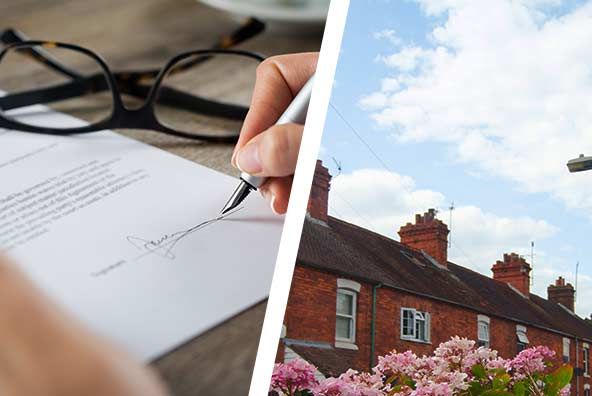For some people, getting a home loan can be difficult. They’d have to make a life-altering decision that would alter the dynamics of their financial condition for years. This is due to the monthly EMIs they will be paying. It will undoubtedly have an impact on their monthly expenses. It will be simple to get authorised for a house loan if you meet all of the financial institution’s eligibility requirements. A solid credit score and a clean credit history will also assist you in obtaining immediate approval. It’s usually a good idea to get a few suggestions on how to get a home loan approved quickly.
Keep a good credit score:
Some people may not check their credit ratings before applying for a home loan because they believe they have acceptable credit. However, when it comes to their credit score and credit history, if they aren’t up to par, they will be rejected by lenders.
A credit score will always play a role in whether or not you are approved for a house loan. A good credit score indicates to lenders that you will be able to manage a house loan by making timely monthly EMI payments. Your credit score reflects the history of your credit. Your credit history is made up of information about all of the past credit you’ve had. Information on whether you’ve been paying your credit card bills on time or if you’ve been consistent in repaying past loans that you’ve taken out. A pristine credit history assures the lender that you will be able to repay a home loan. You’ll have no trouble getting your mortgage approved.
Your credit history may have inconsistencies that impair your ability to obtain a home loan. It is imperative that you review your credit history for inaccuracies and correct them as soon as possible. You don’t want a few blemishes on your credit report to stymie your efforts to obtain a home loan. If you haven’t paid off your previous debts, your credit history will reflect this. So, before you apply for a mortgage, you should pay off all of your bills.
Maintain a steady income by staying employed:
Your lender will look into your present employment and income when conducting a background check on you. If you are currently unemployed and have applied for a home loan, the lenders will not be pleased. They’d have serious doubts about your ability to pay your EMIs if you didn’t have a job to support you. Lenders will always establish an eligibility criterion based on the applicant’s minimum income. If you meet the requirements, you will be considered.
Avoid obtaining new credit and pay off existing debts:
Taking up new credit, such as a personal loan, while applying for a home loan is not a good idea. This is because it will result in a thorough investigation. When a lender does a credit check as part of your application for new credit, they make a hard inquiry. Your credit score will decline if a hard inquiry is done on you. This will reflect poorly on your credit history, and it is possible that this hard inquiry will obstruct the approval of your house loan when it is assessed by lenders. Managing your mortgage and personal loan instalments at the same time is also not a good idea. Double EMI payments will drag you down, trapping you in debt.
It is recommended that you pay off your prior debts before applying for a home loan. If you are in the process of paying off past obligations, you should wait until the debt is completely paid off before pursuing your dream of owning a home.
Double-check that you can afford the loan amount you require:
You’ll be paying your EMIs, so figure out how much you can afford to set away each month for them. Keeping your monthly budgets in mind, you’ll need to devise a strategy for balancing your outgoings. If you believe you will be unable to make the EMI payments, you may wish to wait and save money. Because it will be difficult to obtain a home loan if you are not financially prepared. When it comes to getting a mortgage, having a solid financial foundation is critical.
Try to save money before taking out a loan:
When you’ve decided you’re ready to buy a home, you can begin saving. You may have enough money to make a down payment by the time you are financially stable enough to take out a home loan. In India, banks are only allowed to lend up to 80% of the buying price of a home. You would be responsible for the remaining 20% as a down payment. For example, if you borrow Rs. 50 lakhs from a bank, you will be required to make a down payment of Rs. 10 lakhs. The lender will cover the remaining cost of Rs. 40 lakhs. As a result, if you’re looking for a home loan, be sure you have enough money set aside for a down payment.
Make sure you have all of your documentation in order:
When the collateral offered is the house you’re going to buy, there should be correct property documentation. These aren’t the only documents you’ll require. Financial institutions that are prepared to lend you money will require verification of your income and your credit history. Only if you have all of the essential paperwork will you be considered for a mortgage.
Choosing the proper home and obtaining the finance to purchase that home will be difficult. However, it all depends on whether or not your home loan is authorized. Obstacles such as a poor credit score or a blemished credit history should not prevent you from purchasing your dream home. Also, make sure you can stick to your budgets when paying your EMIs.




